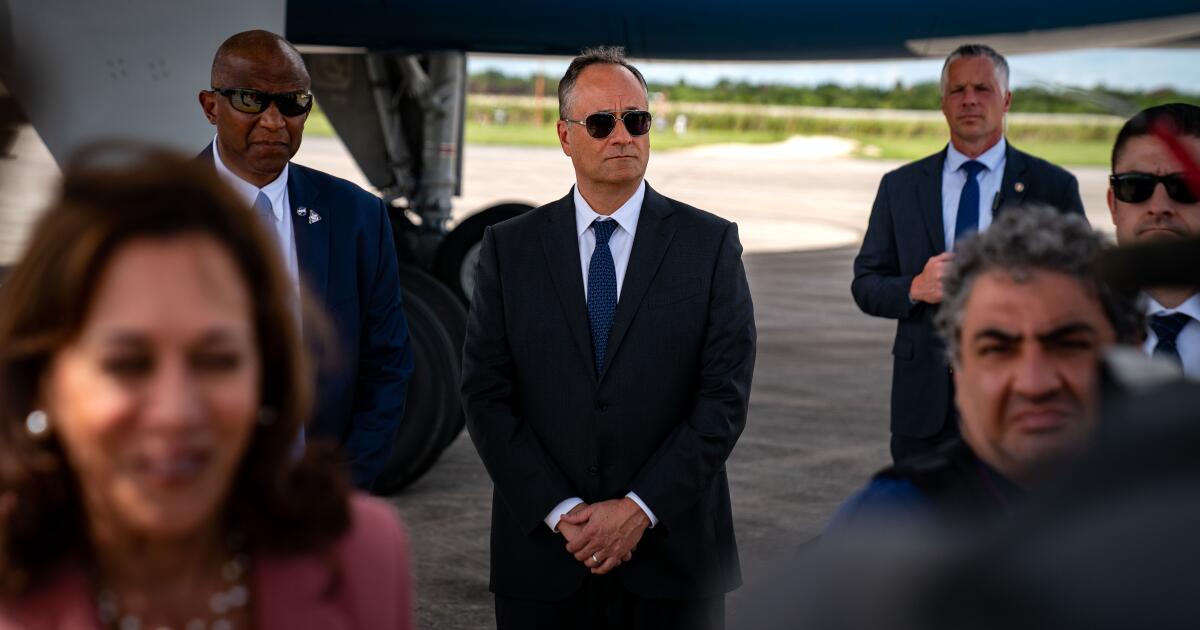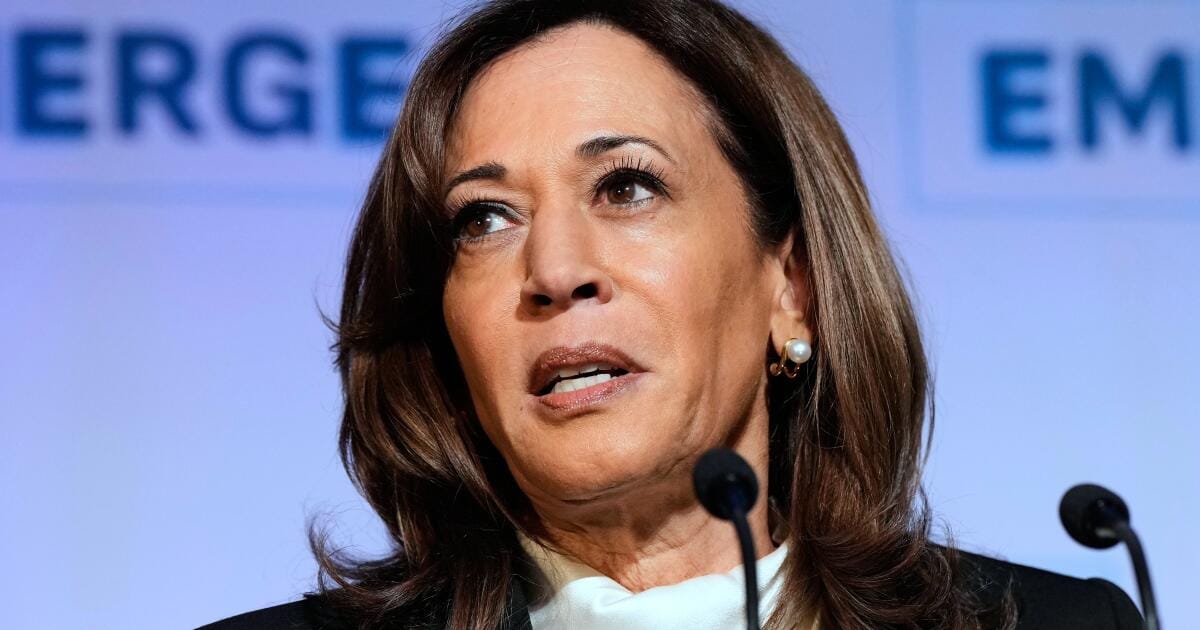Kamala Harris protection flap shows everything is political
When Kamala Harris was contemplating a run for California governor, one of her supposed considerations was the security detail that attends the state’s chief executive.
The services of a life-preserving, ego-boosting retinue of intimidating protectors — picture dark glasses, earpiece, stern visage — were cited by more than one Harris associate, past and present, as a factor in her deliberations. These were not Trumpers or Harris haters looking to impugn or embarrass the former vice president.
According to one of those associates, Harris has been accompanied nonstop by an official driver and person with a gun since 2003, when she was elected San Francisco district attorney. One could easily grow accustomed to that level of comfort and status, not to mention the pleasure of never having to personally navigate the 101 or 405 freeways at rush hour.
That is, of course, a perfectly terrible and selfish reason to run for governor, if ever it was a part of Harris’ thinking. To her credit, the reason she chose to not run was a very good one: Harris simply “didn’t feel called” to pursue the job, in the words of one political advisor.
Now, however, the matter of Harris’ personal protection has become a topic of heated discussion and debate, which is hardly surprising in an age when everything has become politicized, including “and” and “the.”
There is plenty of bad faith to go around.
Last month, President Trump abruptly revoked Harris’ Secret Service protection. The security arrangement for vice presidents typically lasts for six months after they leave office, allowing them to quietly fade into ever greater obscurity. But before vacating the White House, President Biden signed an executive order extending protection for Harris for an additional year. (Former presidents are guarded by Secret Service details for life.)
As the first female, first Black and first Asian American vice president, Harris faced, as they say in the protective-service business, an elevated threat level while serving in the post. In the 230-odd days since Harris left office, there is no reason to believe racism and misogyny, not to mention wild-eyed partisan hatred, have suddenly abated in this great land of ours.
And there remain no small number of people crazy enough to violently act on those impulses.
The president could have been gracious and extended Harris’ protection. But expecting grace out of Trump is like counting on a starving Doberman to show restraint when presented a bloody T-bone steak.
“This is another act of revenge following a long list of political retaliation in the form of firings, the revoking of security clearances and more,” Los Angeles Mayor Karen Bass angrily declared.
True.
Though Bass omitted the bit about six months being standard operating procedure, which would have at least offered some context. It wasn’t as though Harris was being treated differently than past vice presidents.
Gov. Gavin Newsom quickly stepped into the breach, providing Harris protection by the California Highway Patrol. Soon after, The Times’ Richard Winton broke the news that Los Angeles Police Department officers meant to be fighting crime in hard-hit areas of the city were instead providing security for Harris as a supplement to the CHP.
Not a great look. Or the best use of police resources.
Thus followed news that officers had been pulled off Harris’ security detail after internal criticism; supposedly the LAPD’s involvement had always been intended as a stopgap measure.
All well and good, until the conservative-leaning Los Angeles Police Protective League, the union representing rank-and-file officers, saw fit to issue a gratuitously snarky statement condemning the hasty arrangement. Its board of directors described Harris as “a failed presidential candidate who also happens to be a multi-millionaire, with multiple homes … who can easily afford to pay for her own security.”
As if Harris’ 2024 defeat — she lost the popular vote to Trump by a scant 1.5%, it might be noted — was somehow relevant.
To be certain, Harris and her husband, attorney Doug Emhoff, won’t miss any hot meals as they shelter in their 3,500-square-foot Brentwood home. (The one house they own.) But they’re not stupid-rich either.
One person in the private-security business told Winton that a certain household name pays him $1,000 a day for a 12-hour shift. That can quickly add up and put a noticeable dent in your back account, assuming your name isn’t Elon or Taylor or Zuckerberg or Bezos.
Setting aside partisanship — if that’s still possible — and speaking bluntly, there’s something to be said for ensuring Harris doesn’t die a violent death at the hands of some crazed assailant.
The CHP’s Dignitary Protection Section is charged with protecting all eight of California’s constitutional officers — we’re talking folks such as the insurance commissioner and state controller — as well as the first lady and other elected officials, as warranted. The statutory authority also extends to former constitutional officers, which would include Harris, who served six years as state attorney general.
Surely there’s room in California’s $321-billion budget to make sure nothing terrible happens to one of the state’s most prominent and credentialed citizens. It doesn’t have to be an open-ended, lifetime commitment to Harris’ protection, but an arrangement that could be periodically reviewed, as time passes and potential danger wanes.
Serving in elected office can be rough, especially in these incendiary times. The price shouldn’t include having to spend the rest of your life looking nervously over your shoulder.
Or draining your life savings, so you don’t have to.

